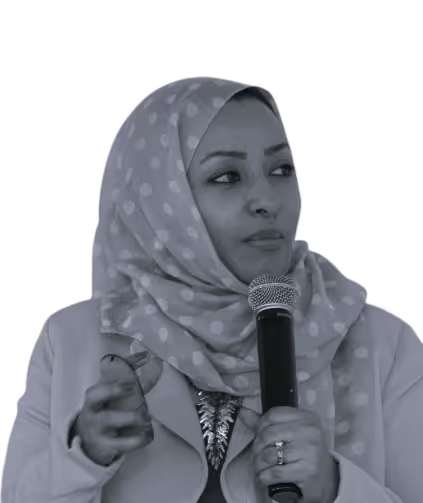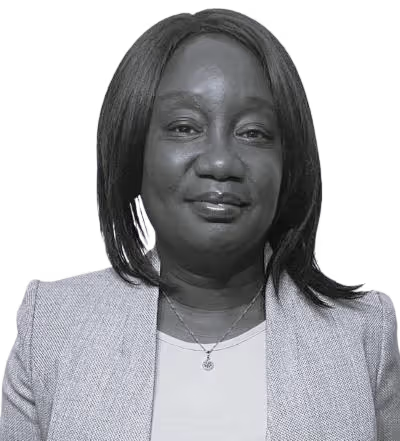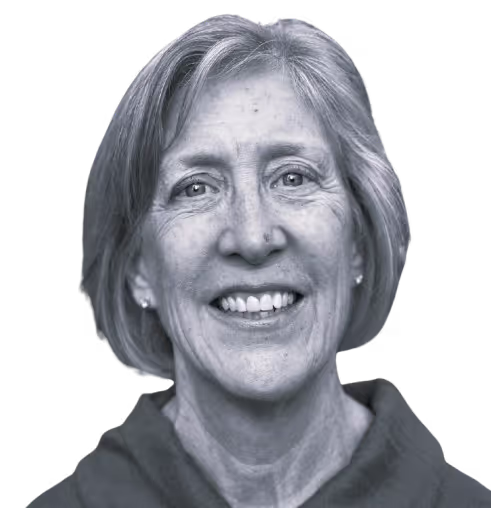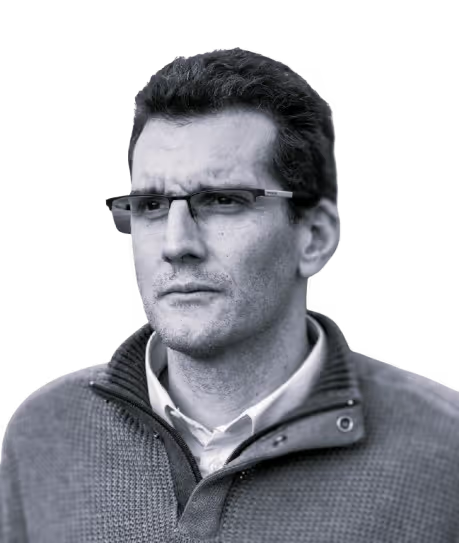LEADERSHIP
Meet the team behind IADA – a group of passionate doctors, health experts, and advocates from around the world. With experience from organizations like Médecins Sans Frontières, Harvard, and the WHO, they’re working together to improve care for people with non-communicable diseases in crisis settings.
Secretariat


Angelica Cristello Sarteau, MSPH, PhD, is a Doctoral Fellow in the Departments of Nutrition and Epidemiology at the Gillings School of Global Public Health, University of North Carolina at Chapel Hill. Formally trained in nutrition, epidemiology, and medical anthropology at Harvard and Johns Hopkins Universities, her expertise spans formative research, clinical trial and program development and implementation, as well as quantitative and qualitative process and outcome evaluations. Her work focuses on improving the management and outcomes of diabetes, including in humanitarian settings.


Anjoli Anand, MD, MPH, is a public health professional board-certified in Emergency Medicine. She has worked with Médecins Sans Frontières (MSF) since 2019 and currently serves as NCD advisor for MSF France, supporting an expanding portfolio of countries including in South Asia, the Middle East, Sub-Saharan Africa, and the Caribbean. Previously, she worked as an Emergency Room doctor in New York City (NYC) hospitals, an Epidemic Intelligence Service Officer with the CDC’s Malaria Branch, a medical epidemiologist for the NYC Department of Health and Mental Hygiene in the COVID-19 response, co-chair of MSF-USA’s DEI Council, and as a community organizer focused on workers’ rights and immigrant and reproductive justice.


Anna Nakayama, MSc, RD, LDN, ANutr, is a Registered Dietitian Nutritionist specializing in public health. She has over 10 years of experience in program management for health initiatives and research, including for humanitarian non-profits, the U.S. government, and academic medical centers, with projects in Kenya, Malawi, and the U.S. In addition to her role at IADA, she provides nutrition counseling to low-income patients with chronic diseases and serves on the American Red Cross Disaster Action Team. She holds a Master's degree in Nutrition for Global Health from the London School of Hygiene & Tropical Medicine.


Beatrice Vetter, PhD, currently acts as Global Health Advisor to NGOs, Think Tanks and entrepreneurs, supporting them with ecosystem intelligence, strategic direction and market access intelligence. Prior to this, Beatrice served as Director of the NCD programme at FIND, an international NGO working to improve access to medical diagnostics in low- and middle-income countries.


Eiman Hag, BDS, MPH, MD, is a public health professional with over a decade of experience in health systems strengthening, non-communicable diseases (NCDs), and healthcare management in low- and middle-income countries. She has worked with the Public Health Institute in Sudan, the WHO Country Office in Sudan, and the WHO Regional Office for the Eastern Mediterranean. Eiman has led efforts to integrate NCD care into emergency response plans across 22 countries, including the development of the Regional Framework for Action on NCDs in Emergencies. She has supported critical NCD interventions in crises, including establishing a Regional Expert Network for chronic kidney disease and advocacy for renal dialysis as a life-saving intervention in emergencies.


Emma Klatman, MSc, is the Global Advocacy and Policy Manager for Life for a Child, a program of Diabetes Australia that supports young people living with diabetes in less-resourced settings worldwide. She has lived with type 1 diabetes for most of her life and has been a visible advocate since childhood. Emma holds a Master’s degree in International Public Policy and is a recognized leader in global diabetes advocacy, with expertise in health system strengthening, access to care, and rights-based approaches. Within IADA, she leads efforts to embed lived experience across humanitarian diabetes initiatives and shape strategic approaches that reflect the realities and voices of people living with diabetes.


Jay Bagaria, MD, DTMH, MPH, is a global health professional with nearly 20 years of experience in public health, specializing in reducing health inequalities, addressing the social determinants of health, health system strengthening, and tackling non-communicable diseases (NCDs), including in complex and fragile settings. She has extensive experience working with the UK Government (Department for International Development and Department of Health), the NHS, WHO, and civil society organizations, including the oversight and governance of large-scale health programs.


Jing Luo, MD, MPH, is an Associate Professor in the Division of General Internal Medicine at the University of Pittsburgh. Prior to joining Pitt, he was a faculty member at Harvard Medical School. He completed his residency in primary care internal medicine at Yale-New Haven Hospital and earned his MPH from the Harvard T.H. Chan School of Public Health. He currently serves as the Principal Investigator for the HumAn-1 Study.


Kelly Lai is a human rights advocate with over a decade of experience advancing public health, social justice, and international development. She received academic training in Development Geography at King’s College London and holds a master's degree in Global Health Delivery from Harvard Medical School. Her professional work centers on NCDs and the health rights of marginalized communities, including incarcerated people, individuals experiencing homelessness, and refugees. Kelly Lai’s recent projects include 1) leading research on Post-Tuberculosis Lung Disease among former mineworkers in Southern Africa; 2) driving policy reform to expand access to new cancer treatments for financially vulnerable patients in Asia; 3) founding Taiwan’s sports diplomacy coalition, which integrates body literacy and poverty alleviation initiatives for adolescent girls in 10+ countries across 5 continents.


Kiran Jobanputra, MBChB, MRCGP, MPH, is a medical doctor and public health practitioner, who has worked for 14 years in humanitarian field programs including as Non-Communicable Diseases (NCD) Advisor and Deputy Medical Director for Médecins Sans Frontières (MSF). He currently works as a family physician and as a consultant with WHO on strengthening NCD integration in humanitarian responses. He is a member of MSF’s Reflection and Analysis Network, focusing on health equity and the health needs of internally displaced people.


Mohammed Seyam, MD, MSc, is a medical doctor and global health professional working in policy, advocacy, and health systems strengthening for non-communicable diseases (NCDs) in humanitarian and development settings. He holds an MSc in Global Healthcare Management, combining clinical training, policy expertise, research capability, and lived experience with type 1 diabetes to bridge the gap between global policy discussions and practical implementation. Mohammed has collaborated with WHO, Médecins Sans Frontières, and civil society networks across the Eastern Mediterranean and beyond to improve access to care in emergencies. His most recent work with WHO EMRO was co-leading the development of an implementation guide for the Regional Framework for Action on NCDs in emergencies.


Sylvia Kehlenbrink, MD, is an endocrinologist and Director of Global Endocrinology at Brigham and Women’s Hospital, Assistant Professor at Harvard Medical School, and leads the Non-Communicable Diseases (NCDs) in Conflict Program at the Harvard Humanitarian Initiative. Her work focuses on improving diabetes care and insulin access in humanitarian and low-resource settings. She led the first inter-agency study on diabetes in humanitarian contexts and collaborates with WHO on type 1 diabetes guidelines. In 2019, she organized the first Symposium on Diabetes in Humanitarian Crises at Harvard, which led to the Boston Declaration and formation of the International Alliance for Diabetes Action (IADA).


Éimhín Ansbro, MBBCh, MSc, DTMH, is a practicing primary care physician and public health researcher based at the London School of Hygiene & Tropical Medicine (LSHTM). Clinically trained in Ireland, she spent several years developing non-communicable disease (NCD) services with Médecins Sans Frontières (MSF) before joining LSHTM in 2016. She holds an MSc in Tropical Medicine and International Health (TMIH) and a PhD in the epidemiology of NCDs and focuses on implementation research on NCD care delivery in humanitarian settings.
Board of Directors


Bayard Roberts
Bayard Roberts, PhD, is a Professor of Health Systems and Policy at the London School of Hygiene & Tropical Medicine (LSHTM). His work focuses on mental health and non-communicable diseases (NCDs) in settings affected by war and forced displacement. He co-organizes the 'Management and Evaluation of Public Health Projects in Humanitarian Crises' module for LSHTM’s Distance Learning MSc in Public Health in Humanitarian Crises and teaches on the Conflict and Health module and the Diploma in Tropical Nursing. He served as Guest Editor for the Journal of Migration and Health’s series on internal displacement and health (2021-2022), and for The Lancet’s series on public health in humanitarian crises (2017).


Lilian Kiapi
Lilian Kiapi, MBChB, MPH, is a global public health leader with over 25 years of experience establishing programs and projects, providing short- and long-term technical assistance, and leading strategy development, implementation, and evaluation of public health projects in both emergency and development settings. Her works has supported refugee, internally displaced, and underserved communities across 26 countries across Sub-Saharan Africa, the Middle East and North Africa, Asia, and Latin America. Lilian also brings extensive experience in fundraising and capacity building for health workers.


Paul Spiegel
Paul B. Spiegel, MD, MPH, is a physician and epidemiologist with over 30 years of experience in humanitarian health. He serves as Director of the Johns Hopkins Center for Humanitarian Health and Distinguished Professor at the Bloomberg School of Public Health. He previously held leadership roles at UNHCR, the U.S. Centers for Disease Control and Prevention, Médecins Sans Frontières, and Médecins du Monde. His work spans global health, migration, and human rights, and he has authored more than 200 publications. He currently chairs the CHH-Lancet Commission on Health, Conflict and Forced Displacement, co-chairs Lancet Migration, serves as Associate Editor for the journal Conflict and Health, sits on the editorial board of the Journal on Migration and Human Security, and is Co-Technical Director of EQUAL.


Rachel Nugent
Rachel Nugent, PhD, is an affiliate associate professor in the Department of Global Health at the University of Washington and served as Director of the Center for Global Non-Communicable Diseases (NCDs) at RTI International until 2023. She has over 30 years of experience in global development as a researcher, practitioner, and policy advisor to governments. She served on the U.S. Institute of Medicine Committee on Economic Evaluation, the International Expert Group for the Global Nutrition Report, and The Lancet Commissions on Global Health 2050 and Women, Power, and Cancer. She led the Lancet Task Force on NCDs and Economics in 2018 and received the Global Health Luminary Award from the Washington Global Health Alliance in 2021.


Stéphane Besançon
Stéphane Besançon, MSc, is a biologist and nutritionist with degrees in nutritional physiopathology and international development. He is an Associate Professor in Global Health at the Conservatoire National des Arts et Métiers in Paris. He is the founder and director of the international NGO Santé Diabète which specialises in the prevention and management of non-communicable diseases (NCDs), particularly diabetes in Africa. He is a member of the WHO Global Coordination Mechanism on NCDs and served as a member of the Lancet Commission on Diabetes in Sub-Saharan Africa.

